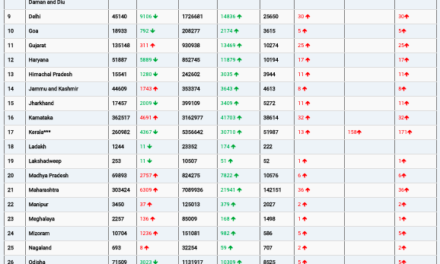March 21, 2024
As the world grapples with the challenges posed by the COVID-19 pandemic and the seasonal flu, researchers have unveiled a groundbreaking discovery: a multitasking substance capable of preventing and treating both flu and COVID-19 infections concurrently. This promising breakthrough, spearheaded by a collaborative effort between academia, industry, and research institutions, offers new hope in the ongoing fight against respiratory viral infections.
Led by Professor Seung-Woo Lee and a team of experts from Pohang University of Science and Technology (POSTECH), along with NeoImmuneTech and other partners, the research aims to address the urgent need for more broadly applicable treatments capable of swiftly responding to the ongoing mutations observed in viruses such as COVID-19.
The study, recently published in the prestigious international journal Cell Reports Medicine, highlights the potential of a long-acting recombinant cytokine protein known as rhIL-7-hyFc (NT-I7; efineptakin alfa). This protein, currently undergoing clinical development as an immunotherapy drug, demonstrates remarkable efficacy in activating diverse immune cells within the respiratory tract.
In experimental settings, the protein was found to trigger the influx of acquired T cells and the proliferation of innate-like T cells in the lungs. These innate-like T cells exhibited a swift and comprehensive defense against a broad spectrum of pathogens, effectively combating COVID-19, influenza virus, respiratory syncytial virus, and other major respiratory diseases. Notably, the treatment showed both therapeutic and preventive effects, offering a universal approach to combatting respiratory viral infections.
Commenting on the significance of the findings, Professor Seung-Woo Lee emphasized the collaborative nature of the study and its potential to revolutionize the treatment landscape for respiratory virus pandemics. “This research underscores the power of collaboration between industry, academia, and the research community,” stated Professor Lee. “We are dedicated to advancing our efforts to develop a universal treatment capable of controlling co- and serial infections of respiratory viruses and bacteria.”
The study was made possible through the support of various funding sources, including the Infectious Disease Prevention and Treatment Technology Development Program of the Ministry of Health and Welfare, the Mid-Career Researcher Program of the National Research Foundation of Korea, and the Bio-Industrial Technology Development Project of the Ministry of Trade, Industry and Energy.
As the global community continues to navigate the complexities of respiratory viral infections, this groundbreaking research offers a ray of hope, paving the way for innovative treatments that could revolutionize the way we approach infectious diseases.












